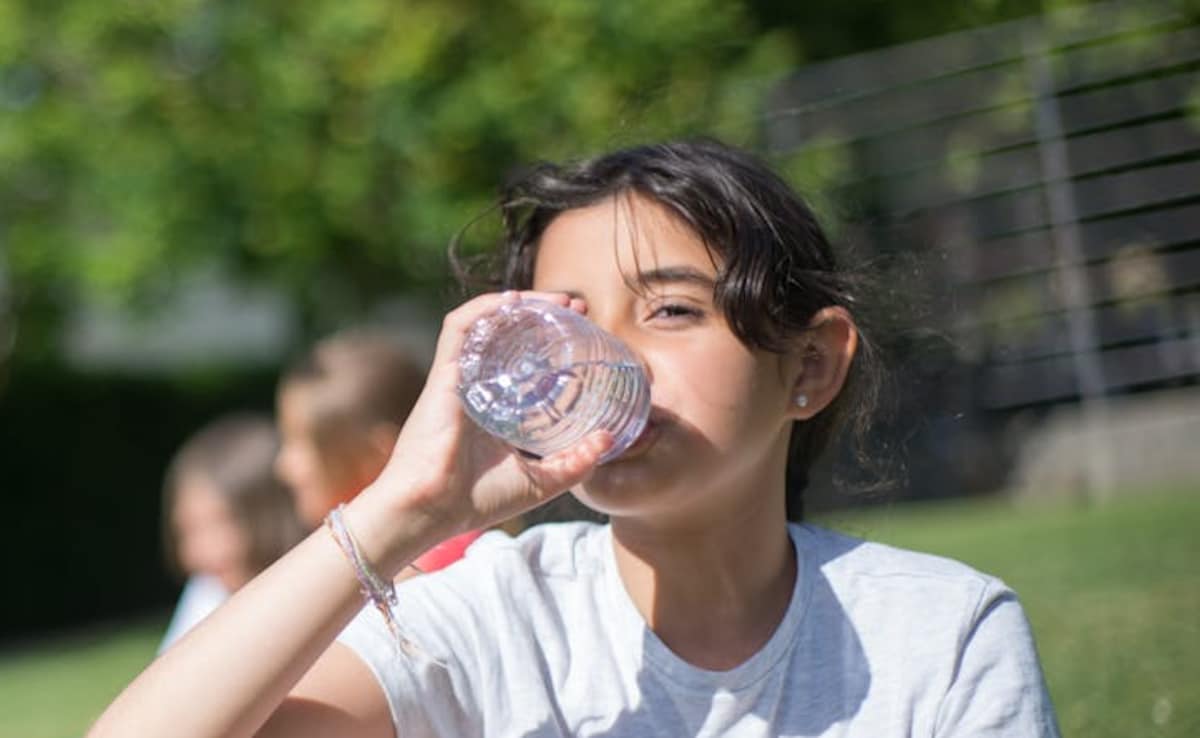
In everyday wellness conversations, hydration is often reduced to "drink enough water or you'll get dehydrated", "your body won't detox naturally unless you hydrate properly", or "hydration is essential for skin health". But a new study suggests there's more at stake, meaning something as critical as how well your body handles stress. Researchers found that people who habitually drink less water exhibit significantly greater spikes in cortisol during stress tests, putting them at greater risk for long-term health problems. This finding adds a compelling dimension to the importance of hydration beyond physical performance and kidney health.
So, let's delve into the study's key insights, review broader evidence on hydration and health, and present expert-backed tips on how to stay optimally hydrated.
What The New Study Shows
The new research, titled "Habitual fluid intake and hydration status influence cortisol reactivity to acute psychosocial stress," was published in Journal of Applied Physiology in 2025. The study recruited healthy adult participants and categorized them into LOW and HIGH fluid-intake groups based on national database norms. Over seven days, participants maintained their usual hydration patterns, and on test day, they underwent a Trier Social Stress Test (TSST), a standardized method to provoke psychosocial stress.
Hydration markers (urine osmolality, colour) confirmed that the LOW group was relatively more dehydrated. Both groups experienced similar increases in anxiety and heart rate during the stress test. However, only the LOW group showed a statistically significant increase in salivary cortisol post-stress. Cortisol reactivity (change from baseline) was higher in the LOW group compared to the HIGH group, a moderate-to-large effect attributed to hydration levels clearly. Furthermore, greater cortisol reactivity was significantly correlated with hydration status (urine markers).
The authors conclude that habitual low fluid intake and suboptimal hydration may predispose individuals to exaggerated stress-hormone responses, which in turn could contribute to long-term metabolic, cardiovascular, or psychological risks.
Putting It In Context: Why Hydration Matters
While the new study focuses on stress hormone reactivity, it aligns with decades of research on the broad importance of hydration. Here's what else the literature shows:
Cognitive Function And Mood
Even mild dehydration (loss of around 1-2% of body water) is linked to declines in attention, memory, mood, and increased fatigue or anxiety. One narrative review, Water, Hydration and Health (2010), describes water as a critical nutrient for homeostasis, cognition, and disease prevention.
Long-Term Health Associations
A 2025 study assessed hydration biomarkers (urine osmolality, volume) and cortisol dynamics over a day, though it found no consistent associations in healthy men under non-stress conditions. This underscores that hydration's impact may be more evident under challenge (such as stress) than baseline.
Another review, Hydration for health hypothesis: a narrative review (2020), argues optimal water intake may favourably influence kidney health, weight control, and chronic disease risk. Together, these studies reinforce that hydration is not just about avoiding dehydration. It can shape stress resilience, metabolic health, brain function, and overall longevity.

Photo Credit: Pexels
Practical Tips: How To Hydrate Smartly
Based on the study and broader evidence, here are actionable tips to help maintain healthy hydration:
Aim for a baseline goal
For adults, many guidelines suggest 2-2.5 L/day (women - 2 L, men - 2.5 L) from all sources, adjusted for exercise, heat, or illness. A practical benchmark you can check is that your urine should be pale yellow (not dark) under normal circumstances.
Spread intake across the day
Sip regularly rather than guzzle large amounts occasionally. Carry a water bottle and set reminders, especially during busy or stressful periods.
Include hydrating foods and beverages
Fruits (watermelon, cucumber, oranges), soups, herbal teas contribute to total fluid intake. Avoid counting sugary drinks as hydration.
Monitor signs of underhydration
- Dark urine
- Thirst (though not always reliable)
- Headache, fatigue, or reduced mental sharpness
Adapt during stress, heat, and activity
During hot weather, after sweating, or in emotionally stressful moments, increase hydration to offset losses and suppress cortisol surges.
Be cautious with excessive intake
Overhydration or water intoxication is rare but possible in extreme cases. Balance is key.
The latest study linking low fluid intake to exaggerated cortisol response in stress tests adds an important piece to the hydration puzzle. Rather than simply focusing on physical performance or kidney health, it underscores hydration's role in mental, hormonal, and metabolic balance. Habitual low water intake may predispose individuals to a stronger stress reaction, which over time could contribute to chronic diseases.
While more long-term and intervention studies are needed, the practical takeaway is clear: daily, consistent hydration matters, not just when you're thirsty or sweating. Combining this insight with broader evidence on cognition, hormone regulation, and disease risk makes hydration a foundational pillar of holistic health.
Next time you reach for that water bottle, remember: you might also be supporting your body's ability to handle stress more gracefully.
Disclaimer: This content including advice provides generic information only. It is in no way a substitute for a qualified medical opinion. Always consult a specialist or your own doctor for more information. NDTV does not claim responsibility for this information.
Track Latest News Live on NDTV.com and get news updates from India and around the world

